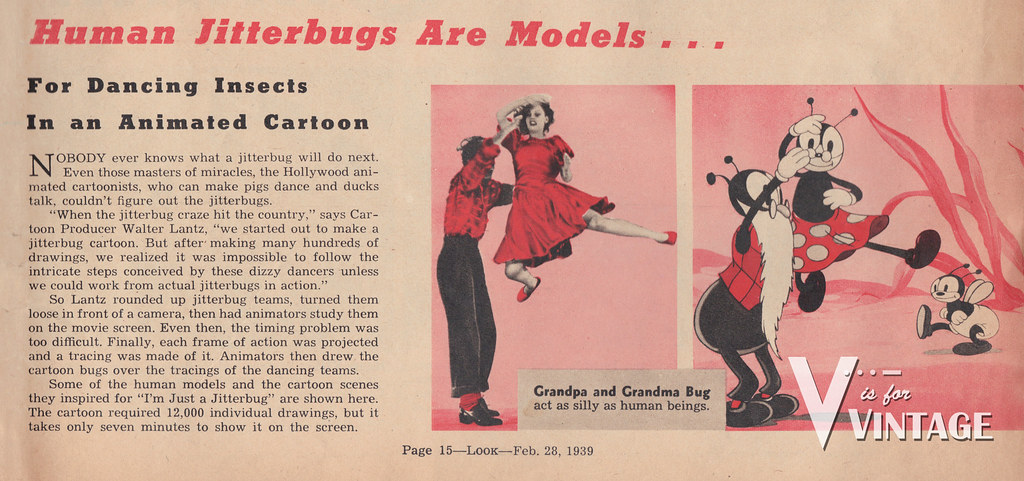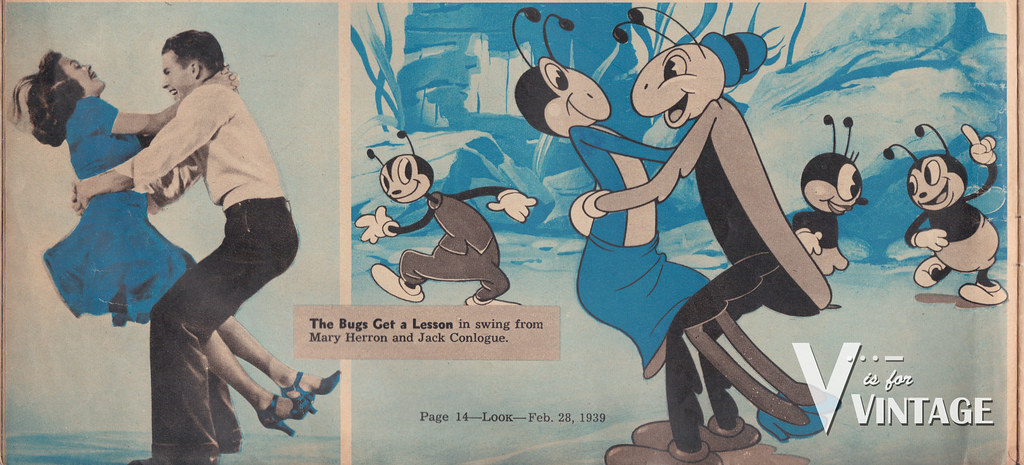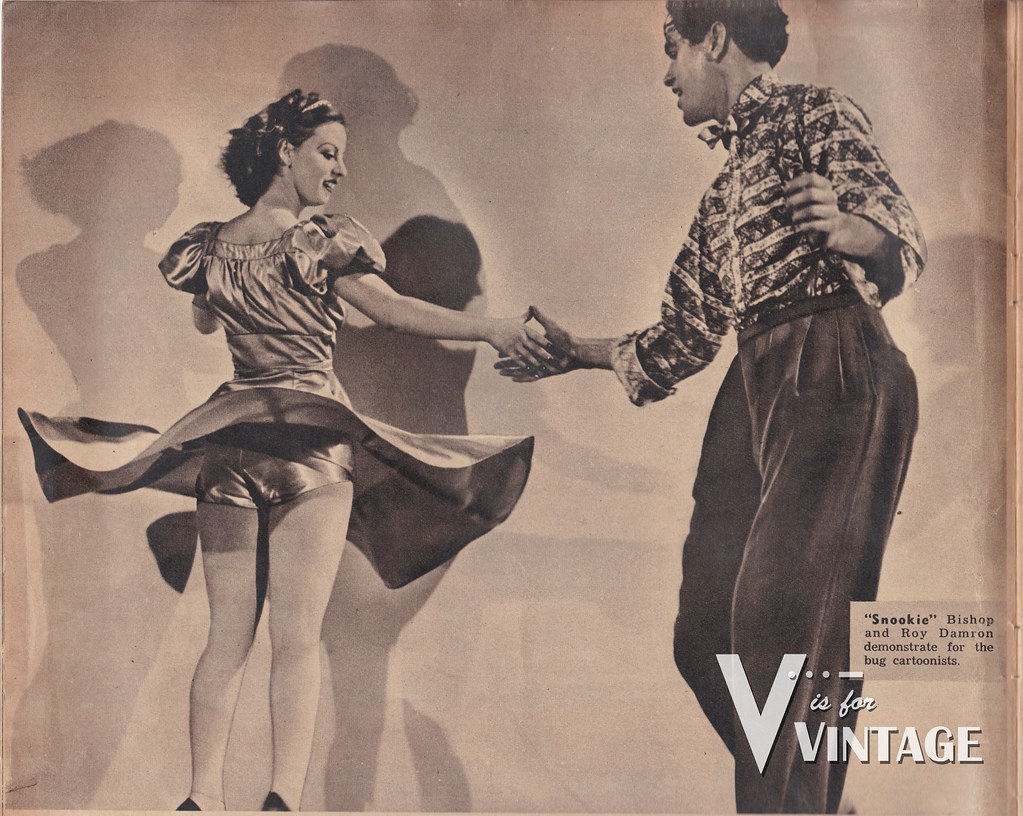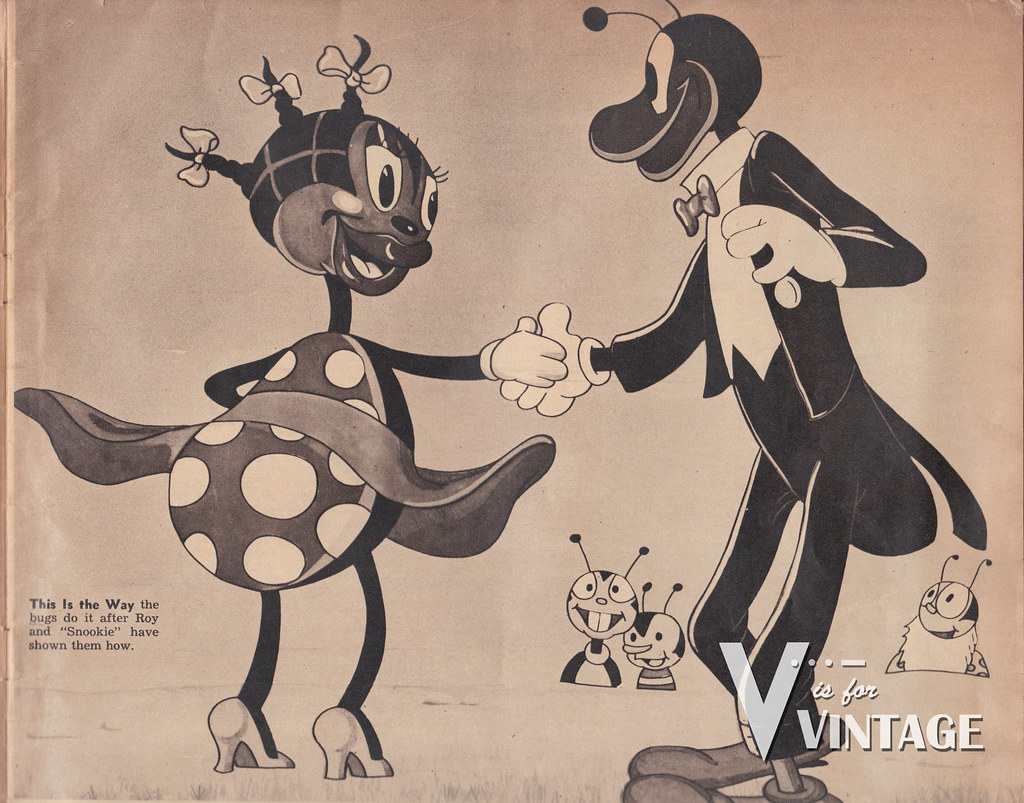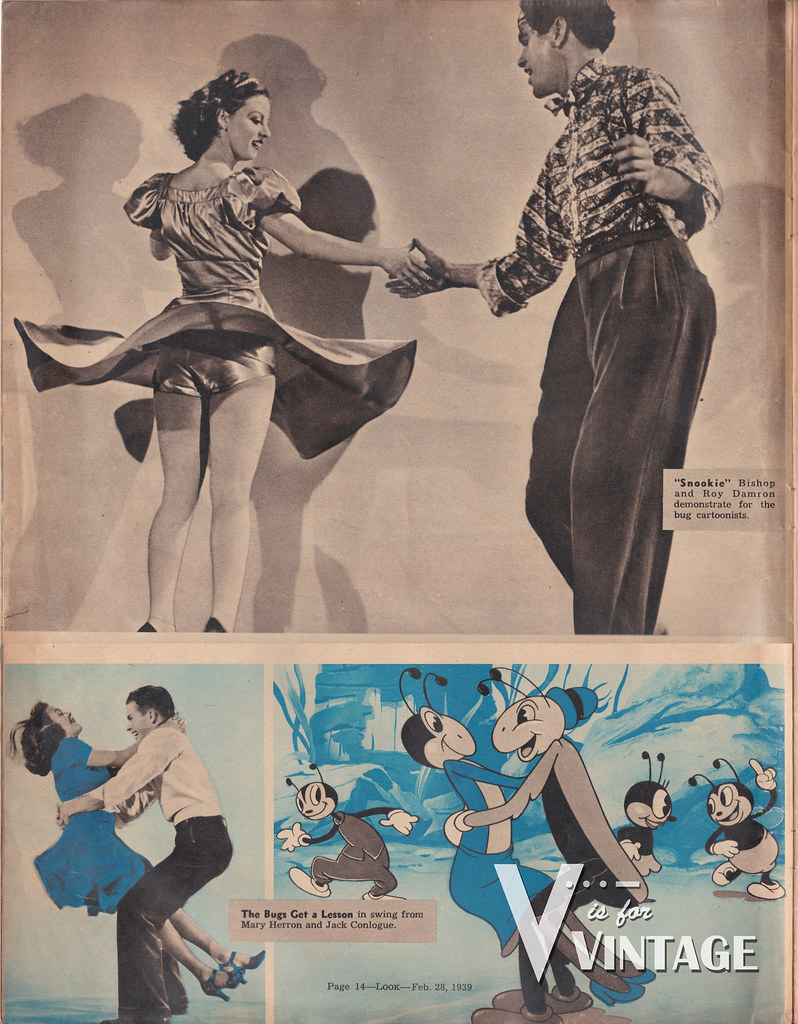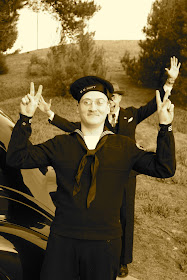The footage of dancing was rotoscoped for the cartoon (basically traced), which seems to be looked down on by animators, but it's fun for us dancers, because it's so true to life. Only 2 couples are shown in the Look article, but from watching the footage we know that Ray Hirsch and Patti Lacey were part of this project too, because we see their signature moves in it!
As was unfortunately common in this era, there are racist and derogatory images included in the article and cartoon. I have included them in this entry because I feel strongly that it is inappropriate to cut them and not recognize the bigotry present.
----------------------------------------------------------------------------------
Human Jitterbugs Are Models...
For Dancing Insects In an Animated Cartoon
Nobody ever knows what a jitterbug will do next. Even those masters of miracles, the Hollywood animated cartoonists, who cam make pigs dance and ducks talk, couldn't figure out the jitterbugs.
"When the jitterbug craze hit the country," says Cartoon Producer Walter Lantz, "we started out to make a jitterbug cartoon. But after making many hundreds of drawings, we realized it was impossible to follow the intricate steps conceived by these dizzy dancers unless we could work from actual jitterbugs in action."
So Lantz rounded up jitterbug teams, turned them loose in front of a camera, then had animators study them on the movie screen. Even then, the timing problem was too difficult. Finally, each frame of action was projected and a tracing was made of it. Animators then drew the cartoon bugs over the tracings of the dancing teams.
Some of the human models and the cartoon scenes they inspired for "I'm Just a Jitterbug" are shown here. The cartoon required 12,000 individual drawings, but it takes only seven minutes to show it on the screen.
Grandpa and Grandma Bug act as silly as human beings.
(Dancers are Roy Damron and Snookie Bishop)
The Bugs Get a Lesson in swing from Mary Herron and Jack Conlogue.
"Snookie" Bishop and Roy Damron demonstrate for the bug cartoonists.
This is the Way the bugs do it after Roy and "Snookie" have shown them how.
----------------------------------------------------------------------------------
And here's the final version of the cartoon!
Funny thing is, I don't see any of the images from the magazine in the cartoon.


"I'm Just a Jitterbug" (1939)
Because I like to see the unedited version myself, I've included the complete magazine pages below.

